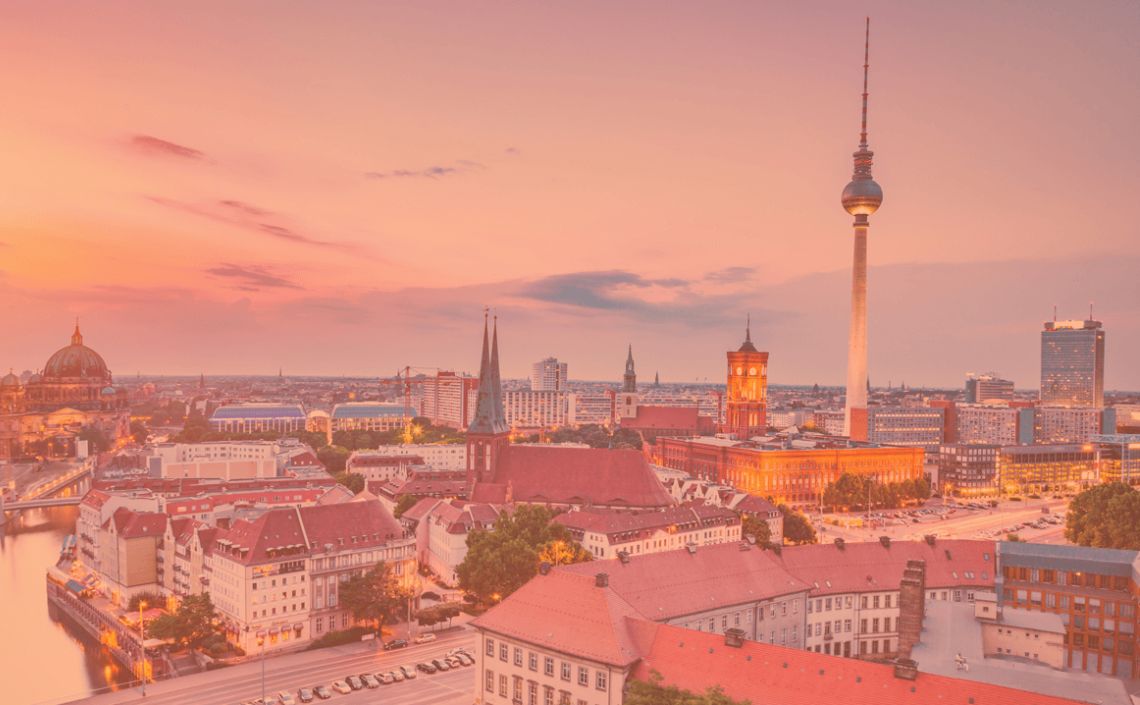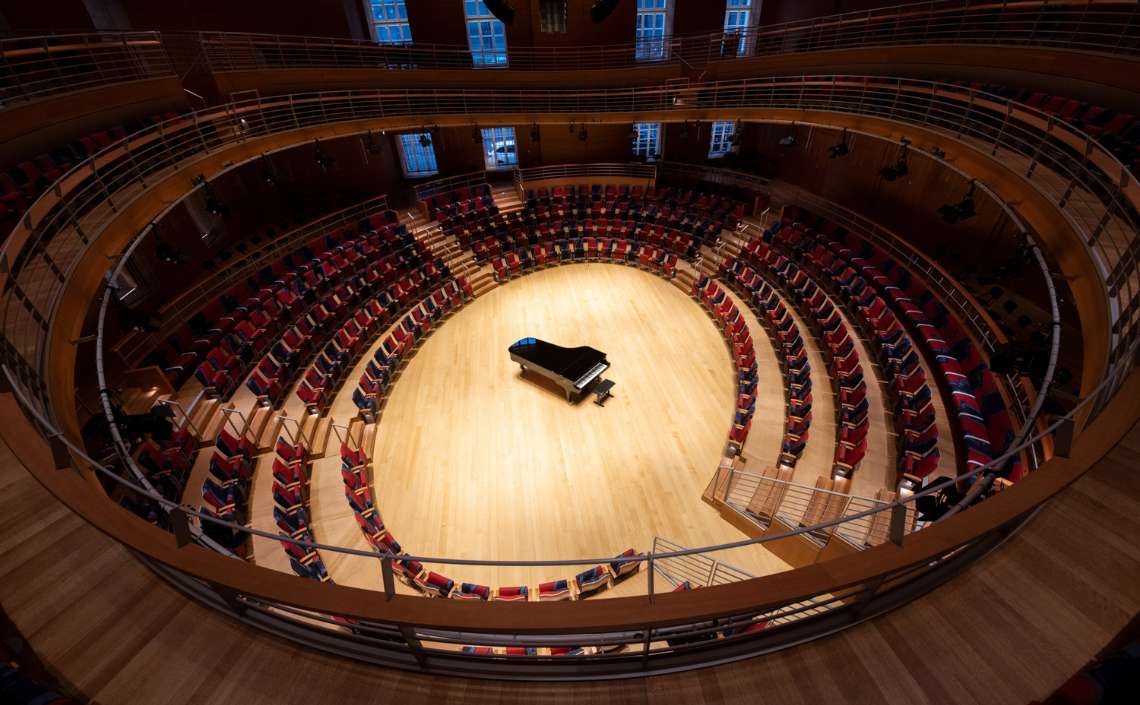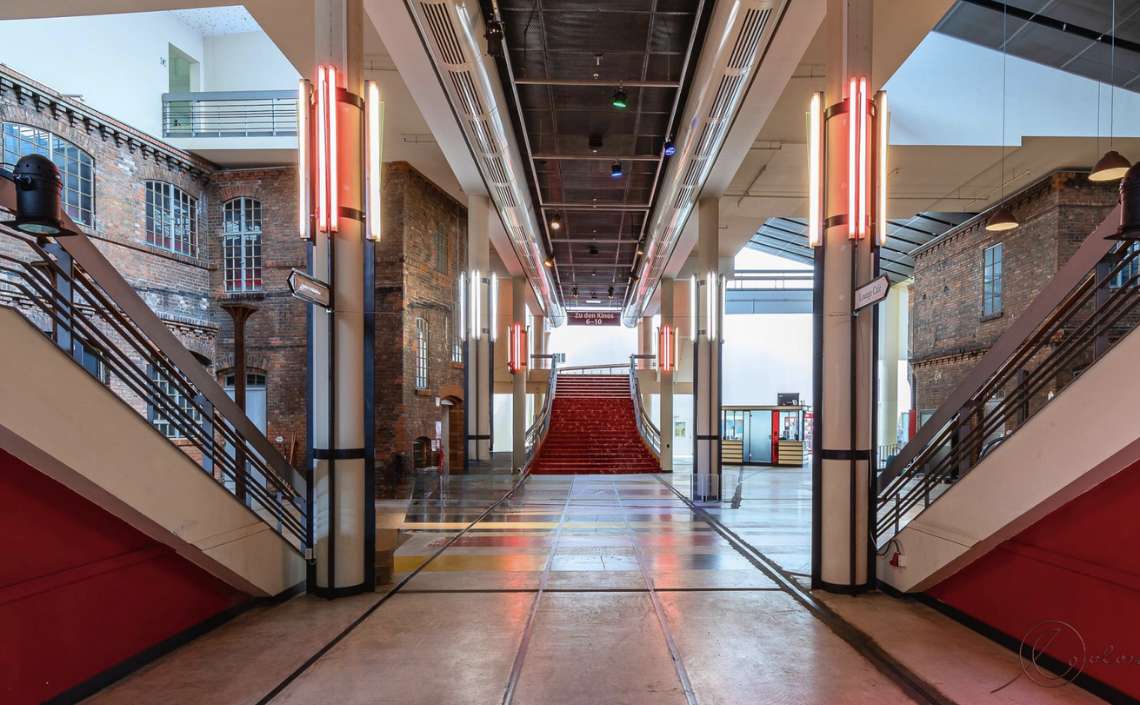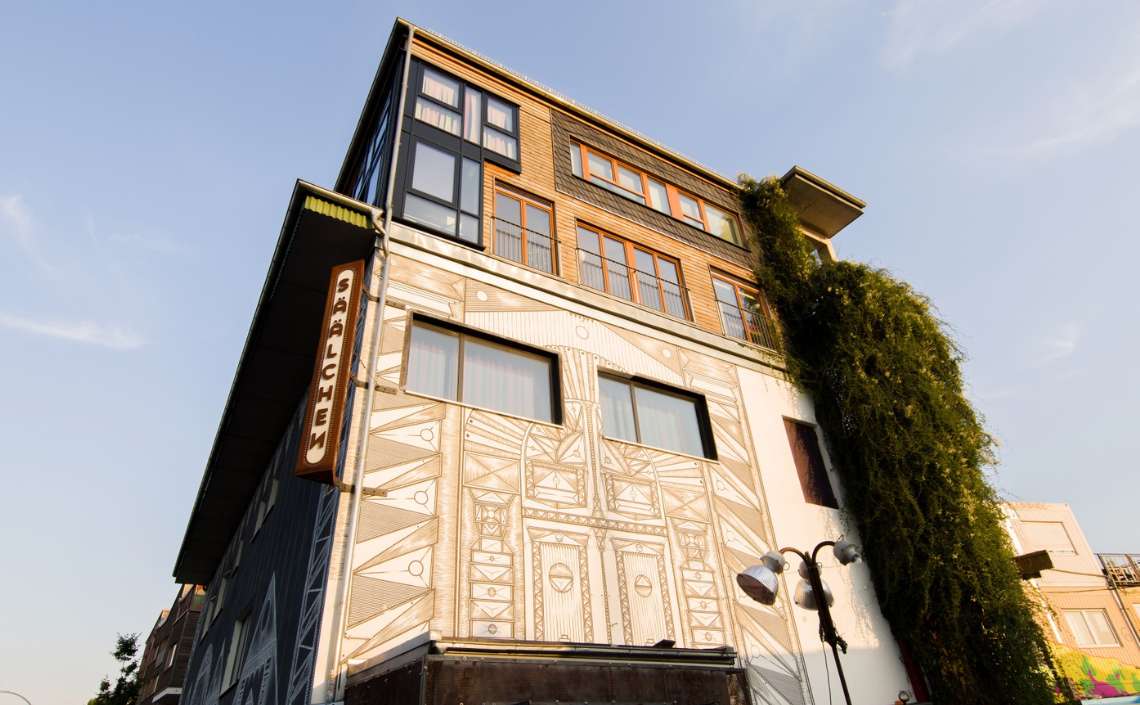- NEXT EDITION
- 13—17 May 2024
- Berlin, Germany
Berlin, Germany
Berlin, capital of Germany, city of the free. Both a city with a rich (and troubled) history as well as a very reinventive place, by necessity. This and the still relatively low-priced real estate / rents plus its libertarian atmosphere and openness to experiments have made it attractive for creatives and the arts for several decades. Berlin is well established as a hotbed of the visual arts, film and fashion industries and – of course – music!
Classical music is big in Berlin, the NY Times coined it the "capital of classical music" – think Berlin Philharmonics, a multitude of orchestras, three opera houses a rich "off"-scene of classical music places and ensembles. Also many of the German leading artist agencies, music start-ups, record labels. And - of course – Berlin is a music city in general from minimal techno to the carnival of cultures global music street parades. Most important: the different art scenes mutually support and complement each other. On and off stage.
It almost goes without saying, that it boasts many opportunities for accommodation, for eating out, for leisure acitvities and really anything you could possibly ask for when visiting for a classical music professionals' meeting, which you hopefully will come May 2024.
More information about Berlin can be found at www.visitberlin.de.

Classical:NEXT Venues
Opening (13 May): Pierre Boulez Saal
The Pierre Boulez Saal opened on March 4 2017 with a concert conducted by Daniel Barenboim. Designed by Frank Gehry, the hall has a unique architectural profile, with its elliptical shape inviting audience and artists to become one community – there is no separation here between stage and auditorium. As the public face of the Barenboim-Said Akademie, the Pierre Boulez Saal enriches the cultural life of Berlin with an outstanding programme of approximately 150 events per season.
At the Pierre Boulez Saal, the classical and romantic repertoire naturally coexists with classics of the 20th century and contemporary music, including a number of world premieres – an idea most significantly expressed in the concert programmes of the Boulez Ensemble, which was founded by Daniel Barenboim. In addition, the hall aims to be a home in Europe for music from the Arab and Persian world and a place for improvised music and jazz. Another focus is on lecture concerts, talks, and discussions.
Daytime Venue (14–17 May): Colosseum
Prenzlauer Berg is a bustling living area close to the city centre and famous for Berlin's post-reunification cultural explosion, which made Berlin a worldwide "place to be".
Right in there lies the cinema complex Colosseum, now reimagined as a state-of-the-art event location with both class and character. An architectural bricolage – think 130 years-old brick walls of a former horse and locomotive shed right inside the modern foyer, red carpet stairways, ten halls (to host our conference, daytime showcases and project pitches), the 18 meter high Atrium and triangular indoor balconies (to host our expo and general networking areas).
The old and the new, what could be more fitting to ClassicalNEXT?! Many different spaces, inspiring atmosphere, no endless walking – just what a professionals' meeting on the future of classical needs!
Nighttime Venue (14–17 May): Holzmarkt 25
Holzmarkt 25 is a unique urban development complex in the heart of Berlin.The 12,000 square meter “creative village” on the banks of the Spree is home to a wide variety of artists and creative people from all disciplines. More than 500,000 people visit the creative hub every year to attend concerts, theater, workshops and festivals or simply to immerse themselves in the vibrant atmosphere of Berlin's creative scene.
Classical:NEXT nighttime "showcase concerts" and "club showcases" will be hosted in the Säälchen and Kater Blau.
The genesis of the project is closely linked to the unique history of the formerly divided city, which after the fall of the Wall became a place of longing for dropouts and creative people from all over the world. Holzmarkt 25 emerged from a subcultural temporary use project in 2012 and has since developed into one of the leading international examples of successful user-driven urban development.
There are numerous different event-locations on site, including one of the most famous underground nightclubs of Berlin „Kater Blau“ and an extensive public outdoor area where people from Holzmarkt, neighbors and visitors from all over the world come together.



